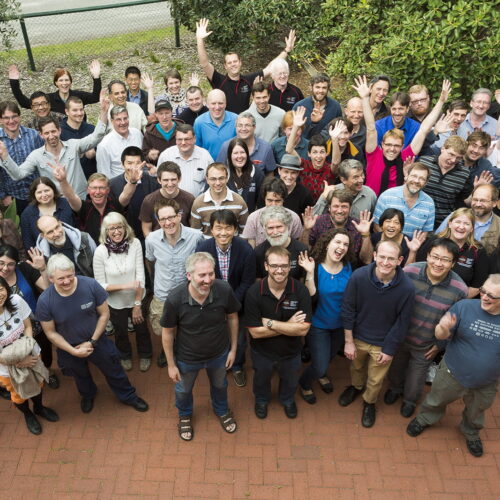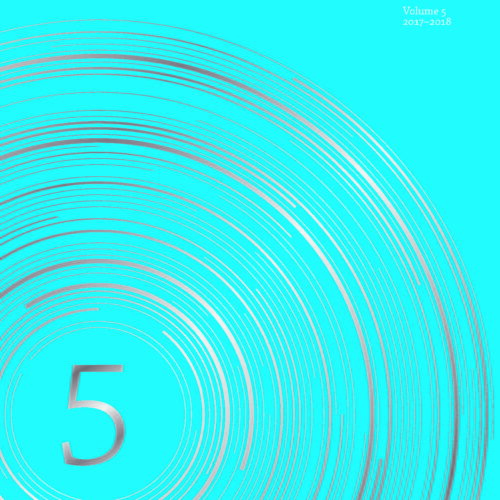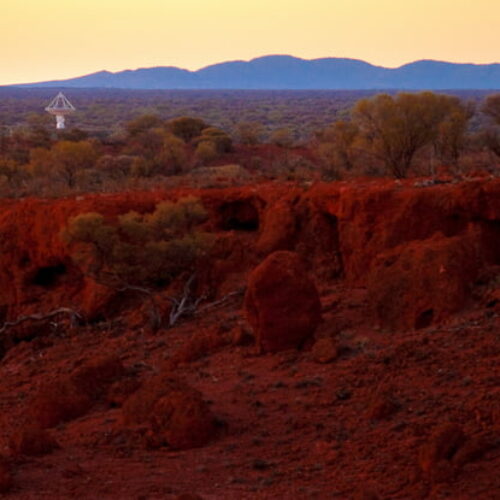ICRAR Visiting Fellowship For Senior Women+ In Astronomy
ICRAR is committed to supporting women+ in astronomical sciences and technology.
Join our vibrant research community for a fully-funded visiting fellowship in Perth, Western Australia.
Purpose of the Fellowship
ICRAR is a Western Australian Government funded, equal joint venture of Curtin University and the University of Western Australia (UWA). ICRAR is committed to supporting women+ (women and gender minorities) in astronomical sciences and technology. This fellowship is aimed at providing an opportunity for senior women+ astronomers, as well as engineers and data scientists working in the field of astronomy, (having more than five years research work experience post PhD) to visit ICRAR and interact with ICRAR researchers and graduate students. This is the seventh round of this Fellowship, previous recipients of the Fellowship can be seen below.
The main objectives of the fellowship are to:
- Create opportunities for young researchers at ICRAR, particularly women+, to learn career development and work-life balance strategies from potential senior role models.
- Enable scientific interaction between early career researchers and graduate students, particularly women+, with senior academic visitors.
- Explore opportunities for developing mentoring relations.
- Enrich the research environment at ICRAR.
- Create opportunities to foster national and international collaborations.
The Fellow is expected to take part in a range of mutually discussed and agreed activities in line with the objectives of the Fellowship and split the time similarly between the two ICRAR nodes (Curtin University and UWA), in order to have the opportunity to participate in ICRAR’s daily life and engage with people at both institutes.
The length of the fellowship is two months.
What the Fellowship provides
ICRAR will offer one fellowship per calendar year and will provide:
- A generous living allowance of $7000/month ($235 / day) is provided for accommodation and living expenses. Where possible, ICRAR will support the identification and securing of suitable accommodation, with preference to Forrest Hall located along the Swan River, noting that prices start from $150/night.
- Travel assistance of up to $5,000, including travel related expenses once in Perth to support fully participating in working across the two nodes (Curtin and UWA).
- Needs-based additional support of up to $3,000 may be provided to enable the reduction of any barriers to undertaking the Fellowship, which may be used for childcare or similar required support.
(Note: Australian tax rules may impact the above amounts).
Application Procedure
We will be reopening applications at the end of 2025 for our Fellowship for 2027.
Applications for the 2025 fellowship closed on 2nd September 2024. The successful candidate will be notified by end of October 2024.
The selected visiting fellow for 2025 should take up their Fellowship at ICRAR between 1 Feb 2025 and 30 Nov 2025. Any delays may lead to cancellation of the Fellowship offer. The visit may be split into two with mutual agreement and with no additional funding requested.
The application (submitted through the form linked below) must include the following information:
- The proposed duration of the visit and dates.
- How the visit will address the objectives of the fellowship as listed above.
- An outline of science and DEI activities to be undertaken at ICRAR
- The names of potential ICRAR collaborators at each node, with whom they should have discussed research interests and activities.
- A brief CV
We may also request names and email contacts of two referees who can comment on the suitability of the candidate against the criteria of this fellowship. ICRAR will contact the referees directly.
Please contact fellowship@icrar.org for additional details or questions regarding this fellowship.
Fellowship recipients
Prof Isabel Pérez Martín (2025 Recipient)
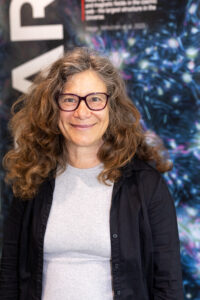 University of Granada
University of Granada Isabel Pérez is a Full Professor at the University of Granada in southern Spain, specialising in the structure, dynamics, and stellar populations of disc galaxies to understand their formation and evolution from both observational and theoretical perspectives. She leads the Calar Alto Void Integral-field Treasury survey (CAVITY) project, which investigates the role of large-scale environments in galaxy evolution by studying galaxies residing in cosmic voids.
After completing her undergraduate and master’s studies at the University of Manchester in the UK, she earned her Ph.D. in Astronomy
and Astrophysics in 2003 from the Australian National University under the supervision of Prof. K.F. Freeman, developing a method to determine the dark matter content of barred galaxies. She then joined the Kapteyn Astronomical Institute in Groningen, the Netherlands, as a Kapteyn Fellow. During that time, she was awarded a prestigious VENI Fellowship by the Netherlands Organisation for Scientific Research (NWO) to study the secular evolution of bars and bulges from the early Universe to the present. In 2009, Isabel joined the Department of Theoretical Physics and Cosmology (Física Teórica y del Cosmos) at the University of Granada, where she was promoted to Full Professor in 2017. She is also the Project Scientist for the WEAVE-Apertif survey and has actively contributed to several major international projects, including CALIFA, TIMER, and SIGNALS.
Beyond her scientific work, Isabel is deeply committed to fostering a more inclusive and equitable scientific community. She actively promotes gender balance, mentors early-career researchers, and advocates for flexible work environments that support diverse needs, and encourages a healthy work-life balance within her research Institute. She also has led, and leads, a wide range of outreach initiatives, at regional, national and international level, aimed at advancing social and gender inclusion through astrophysics and science outreach.
Isabel will be actively engaging with ICRAR staff to explore collaborative opportunities and potential extensions of the CAVITY+
project to the southern skies. Her research interests align closely with several groups at the International Centre for Radio Astronomy Research (ICRAR), particularly those focused on the local and distant Universe within the extragalactic science team.
Dr Jarita Holbrook (2024 Fellowship Recipient)
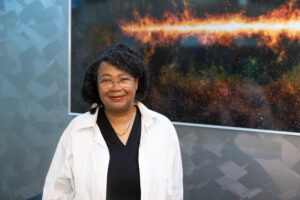
ICRAR Visiting Fellow (October-November 2024)
University of Edinburgh
Dr. Jarita Holbrook (they/them) currently is researching women and minority participation in the Rubin Observatory – LSST project, the second part of a project started in 2009. They recently completed a Marie Skłodowska Curie Fellowship in Science, Technology and Innovation Studies (STIS) at the University of Edinburgh. Holbrook is an interdisciplinary scientist focused on cultural astronomy with an expertise on African Indigenous Astronomy. They achieved a BS in Physics from the California Institute of Technology (Caltech), MS in Astronomy from San Diego State University (their first African American graduate in Astronomy), and PhD in Astronomy & Astrophysics at the University of California, Santa Cruz (their first African American graduate in Astronomy & Astrophysics).
While active in astrophysics, Holbrook studied stellar death and stellar birth with a focus on the things between the stars: gas, ice and dust. As a postdoc, Holbrook transitioned to the social sciences through a National Science Foundation Minority Postdoctoral Research Fellowship in the Center for the Cultural Studies of Science, Technology & Medicine at UCLA and as a Postdoctoral Fellow at the Max Planck Institute for the History of Science in Berlin, Germany. In 2009, Holbrook started including studies of astrophysicists along with film making into their research portfolio. Holbrook focuses on the lived experiences of underrepresented astrophysicists, identity, discrimination and the processes of inclusion and exclusion among astrophysicists. Holbrook has made two award winning films: Black Suns – An Astrophysics Adventure and Hubble’s Diverse Universe. The Tenerife episode of their YouTube series, The Science Tourists, won a webisode excellence prize. They are currently filming a new Science Tourists episode on the Geology & Geophysics of Scotland.
Holbrook is the current president of the International Society for Archaeoastronomy and Astronomy in Culture (ISAAC) and in the past has held leadership roles in cultural astronomy in the IAU, AAS and the Sociétè Européenne pour l Astronomie dans la Culture/European society for Astronomy in Culture (SEAC). They were the first African American to lead a division of the AAS when the chair of their Historical Astronomy Division (HAD). Holbrook established the AAS Oral History Project, as well as, in South Africa started the Astronomy Oral History Project, the latter funded by South Africa’s National Research Foundation (NRF). In recognition of service to the American Astronomical Society (AAS), Holbrook was named a Legacy Fellow (FAAS). They are also a Fellow of the Royal Astronomical Society (FRAS). Holbrook previously held faculty positions in the Physics & Astronomy Department at the University of the Western Cape, South Africa and in the Bureau of Applied Research in Anthropology at the University of Arizona, USA.
Dr Maria Grazia Labate (2023 Fellowship Recipient)
 ICRAR Visiting Fellow (June-August 2023)
ICRAR Visiting Fellow (June-August 2023)
Square Kilometre Array Observatory
Maria Grazia Labate (she/her) was born in Reggio Calabria, Italy, in 1982. She received a Master’s Degree (summa cum laude) in telecommunication engineering from the “Mediterranea” University of Reggio Calabria, Italy, in 2008 and a Ph.D. degree in electronic engineering from the Second University of Naples, Italy, in 2011. In 2008, she worked as a System Integration & Technology Analyst for Accenture S.p.A, and joined the R&D division of Optel InP (at SELEX S.I.) as Phased Array Antenna Designer & Electromagnetic Field Expert. During 2009—2013, she worked as a Radar Antenna Designer & System Analyst in the Innovation Team of SELEX Sistemi Integrati S.p.A., a Finmeccanica Company, where she was the recipient of the “Innovation Award” in 2010. She joined the Antenna Centre of Competence of Astrium Ltd. (EADS) in 2013, and later took part in the SKA Project.
She is currently working at the Headquarters of the Square Kilometre Array (SKA) Observatory, which is the entity responsible for overseeing the global activities and international effort to eventually build the world’s largest radio telescope. She joined the SKA Organisation as a System Engineer for the Aperture Arrays and, since 2017, she has been the Telescope Engineer responsible for the design and delivery of the overall SKA low-frequency radio telescope (SKA-Low). Her scientific interests include radio astronomy, radio telescopes, aperture arrays, antenna arrays synthesis both in frequency and time domain, and antenna design and characterization. She is the author of several papers published in international scientific journals and proceedings of international conferences. She is also co-inventor of three patent applications.
Professor Prajval Shastri (2020 Fellowship Recipient)
ICRAR Visiting Fellow (October-December 2023)
Raman Research Institute
 Prajval Shastri (she/they) is an astrophysicist of over four decades, specialising in the physics of supermassive black holes that are found in the centres of distant galaxies. She investigates the phenomenology of accreting supermassive black holes and their host galaxies with telescopes at multiple frequencies based on earth as well as in space.
Prajval Shastri (she/they) is an astrophysicist of over four decades, specialising in the physics of supermassive black holes that are found in the centres of distant galaxies. She investigates the phenomenology of accreting supermassive black holes and their host galaxies with telescopes at multiple frequencies based on earth as well as in space.
She got her PhD from the Tata Institute of Fundamental Research and after post-doctoral research positions in the University of Texas at Austin, University of California at Berkeley and the Harvard-Smithsonian Centre for Astrophysics she was a faculty of the Indian Institute of Astrophysics, Bengaluru for 23 years. She has been a Fulbright fellow at Stanford University and is currently Emeritus Scientist at the Raman Research Institute and Adjunct Professor at the International Centre for Radio Astronomy Research, Australia.
She is extremely passionate about science outreach. She believes that the cultivation of scientific thinking is for everyone, uses astrophysics as a vehicle to engage lay audiences of all ages with these questions in multiple languages, and works for the peoples science movement towards this goal. She is also deeply concerned about the inequities in the sciences and attempts to bring an intersectional lens to the endeavours to mitigate them.
She is founder and past chair of the Gender in Physics Working Group of the Indian Physics Association (IPA) and past member of the Working Group for Gender Equity of the Astronomical Society of India. She is Vice-chair of the Women in Physics Working Group of the International Union of Pure and Applied Physics (IUPAP)and Vice-Chair of the Executive Committee for the International Year of Basic Sciences for Sustainable Development.
In addition to her research publications and popular articles on astrophysics, her published work includes writings on gender inequity as well as science and society.
Professor Lilia Ferrario (2019 Fellowship Recipient)
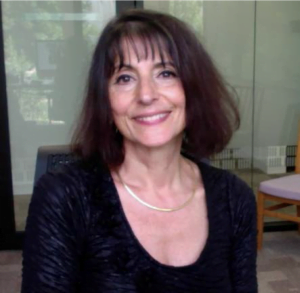 ICRAR Visiting Fellow (June-September 2019)
ICRAR Visiting Fellow (June-September 2019)
The Australian National University
Lilia Ferrario is a theoretical astrophysicist. Her research interests have been wide-ranging and she has made leading contributions to several topics. In stellar structure and evolution she worked on the vexed question of why stars become red giants. She then moved to the modelling of the atmospheres of magnetic white dwarf stars and of magnetically confined accretion flows and cyclotron shocks in the interacting binary stars known as Magnetic Cataclysmic Variables. More recently, she has studied the radio, X-ray and birth properties of pulsars and magnetars. She has also embarked on the search for the elusive progenitors of type Ia Supernovae, used to study the accelerating expansion of the universe, and on the origin of long gamma-ray bursts. She is currently working on the origin of magnetic fields in white dwarfs and neutron stars and on the dynamical properties of white dwarfs to conduct archaeological studies of the Milky Way.
Lilia Ferrario graduated in Italy at the University of Bologna and completed her PhD at the ANU Mount Stromlo and Siding Spring Observatories in 1990. After a few years in the UK as a postdoctoral fellow at the University of Leicester, she returned to Australia as a joint Research Fellow at the Research School of Astronomy and Astrophysics and the School of Mathematical Sciences. She was appointed as a lecturer in the ANU Department of Mathematics in 1996. She is currently the Associate Director Education of the Mathematical Sciences Institute and she is a Senior Fellow of the Higher Education Academy.
Lilia will engage in scientific collaborations with ICRAR staff on Galactic archaeology, pulsars and magnetars, metal polluted white dwarfs, and on the radiation properties of Magnetic Cataclysmic Variables. Lilia will meet with early career researchers and PhD students to help them enhance their career prospects and identify common research interests. She will also engage in discussions on gender equality in science and will propose strategies to promote the appointment and promotion of women in astronomy.
Associate Professor Anna Frebel (2017-18 Fellowship Recipient)
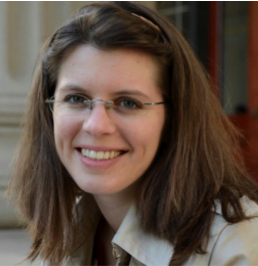 ICRAR Visiting Fellow (November 2017-January 2018)
ICRAR Visiting Fellow (November 2017-January 2018)
MIT, Cambridge, MA, USA
Anna Frebel is an observational astronomer and her research is primarily observational stellar astrophysics, focusing on the discovery and element abundance analyses of the oldest, most metal-poor stars in the halo of the Milky Way and small dwarf satellite galaxies to explore the chemical and physical conditions of the early universe (“stellar and dwarf galaxy archaeology”). The main goals center around understanding a broad range of topics ranging from nucleosynthesis and nuclear astrophysics to chemical evolution to first star/first galaxy formation, and to the assembly of the Milky Way with its dwarf galaxies.
After studying physics in Freiburg, Germany, she obtained her Ph.D. in astronomy and astrophysics from The Australian National University’s Mt Stromlo Observatory (2007). She was awarded the 2007 Charlene Heisler Prize for the best Australian astronomy PhD thesis of 2006. She was a McDonald Postdoctoral Fellow at the University of Texas, Austin (2006 – 2008) and a Clay Fellow at the Harvard-Smithsonian Center for Astrophysics in Cambridge (2009 – 2011). Science News Magazine selected Anna Frebel as one of their ten 2016 Outstanding Young Scientists, and she is a 2011, 2013, and 2015 Kavli Frontiers of Science Fellow (National Academy of Sciences). She won a 2013 CAREER Award from the US National Science Foundation for her work on the oldest stars and the early Universe. She also received the 2010 Annie Jump Cannon Award by American Astronomical Society and the 2009 Ludwig-Biermann Young Astronomer Award (from the German Astronomical Society).
At ICRAR, Anna will engage in scientific collaborations with the staff, conduct a series of discussions on gender and work life issues, and share her experience as a senior woman and mentor in astronomy with PhD students and ECRs.
Dr Francesca Primas (2016-17 FELLOWSHIP RECIPIENT)
 ICRAR Visiting Fellow (July 2017)
ICRAR Visiting Fellow (July 2017)
Full Astronomer, Chair of ESO Faculty, European Southern Observatory
Francesca Primas is an observational astrophysicist whose work focuses on unraveling the formation and evolution of the Milky Way and Local Group galaxies via a detailed study of their chemical histories. For this, Francesca has used a variety of instruments, both in space and on ground, including the most efficient spectrographs at the largest ground-based facilities. She has explored different elements of the Periodic Table (from lithium down to uranium) and she likes to tackle different stellar environments (galaxy halos, disks, open and globular clusters). Her work ties together several topics, including primordial and stellar nucleosynthesis, galactic and extra galactic chemical evolution and enrichment timescales, stellar atmospheres and near field cosmology.
Francesca spent most of her career at the European Southern Observatory, where she is a Full Astronomer, working in the Observing Programme Office. Between 2006 and 2015, she has been the Head of the User Support Department, actively contributing to the success of the VLT operational model. Currently, she is also the Chair of ESO Faculty. Francesca obtained her PhD from University La Sapienza in Rome (Italy), after having carried out most of her thesis project at the University of Chicago, where she then stayed for her first post-doctoral appointment, before joining ESO.
Francesca is also very well-known for her outstanding commitment and active engagement on the topic of gender biases in astronomy. She is currently the Chair of the IAU Working Group on Women in Astronomy, and she is a strongly involved in promoting female astronomers and work-life balance. Quoting a statement from her, “despite the importance of having the right policies and benefits in place, these will have a limited effect if the mentality/attitude of the people does not change. No matter how much and how fiercely we discuss about equal opportunities, pro or con “quotas”, it is our attitude that needs to change, becoming truly inclusive and diverse, an indispensable part of our being.”
At ICRAR, Francesca will focus on developing a new observational project on light elements in the Galaxy and will also continue studies on the chemical history of dwarf spheroidal galaxies. She will also engage with the ICRAR staff and students in discussions on operational aspects of large astronomical facilities and she is looking forward to exchange views on the main challenges that female astronomers are facing today and debate on best practices and gender equality plans.
Associate Professor Vernesa Smolcic (2015 fellowship recipient)
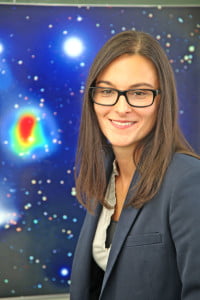 ICRAR Visiting Fellow (2 Nov to 29 Dec 2015)
ICRAR Visiting Fellow (2 Nov to 29 Dec 2015)
Physics Department, Faculty of Science University of Zagreb
Vernesa Smolcic is an observational astrophysicist whose work focuses on understanding how galaxies form and evolve through cosmic time. Her expertise are radio continuum surveys, and multi-wavelength analyses of star forming galaxies and active galactic nuclei, and their cosmic evolution. At ICRAR she will investigate the evolution of active galactic nuclei across cosmic time in synergy between observations and theory.
She currently holds an associate professorship at the Physics Department, Faculty of Science University of Zagreb, Croatia. Prior to this she was assistant professor at the same department (2010-15), ESO ALMA COFUND Fellow (European Southern Observatory, Argelander Institute for Astronomy, Bonn, Germany), CARMA postdoctoral scholar (California Institute of Techology, California, USA, 2008-10). She did her PhD at the Max-Planck Institute for Astronomy and Ruperto-Carola University (Heidelberg, Germany).
Dr. Smolcic is the head of the Croatian Physical Society ‘Women in Physics’ group, and their science section. She holds the European Research Council Starting Research Grant and Marie Curie Career Integration Grant. She has supervised a number of undergraduate and graduate students. Dr Smolcic will be at ICRAR for two months from November to December 2015 as ICRAR Visiting Fellow.
More information at http://zgal.phy.hr and www.phy.pmf.unizg.hr/~vs.
Image of Dr Smolcic credit Damir Fabijanic.
Dr Andreea Font (2014 fellowship recipient)
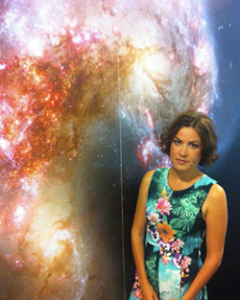
ICRAR Visiting Fellow (21 Sept to 29 Nov 2015)
Senior Lecturer, Liverpool John Moores University
Dr Andreea Font is a computational cosmologist, whose work focuses on understanding the formation and evolution of galaxies. At ICRAR, she will investigate how the formation histories of dwarf galaxies influence the properties that we observe today, using state-of-the-art cosmological galaxy formation simulations. Dwarf galaxies are a sensitive test of our theories of galaxy formation, and the effects of such assembly bias could be detectable with future observations, such as the WAVES galaxy survey which is being led by researchers at ICRAR/UWA. This work will be carried out in close collaboration with Dr Chris Power, Dr Claudia Lagos and Dr Aaron Robotham.
She currently holds a lecturership at the Astrophysics Research Institute at Liverpool John Moores University. Prior to this, she held a Royal Society “Dorothy Hodgkin” fellowship at the Institute of Astronomy in Cambridge (awarded in 2009) and an STFC Postdoctoral fellowship at the Institute of Computational Cosmology at Durham University (2006-2009). She obtained a Ph.D. in Astrophysics from the University of Victoria, Canada in 2005.
Dr Font enjoys discussing science with and working with young researchers. She has supervised a large number of senior undergraduate and graduate students, of which a number have produced scientific publications in high quality journals as a result. She is a strong advocate of advancing women in science-based careers. She has been a member of the STFC Women in Science, Engineering, and Technology Focus Group (between 2011 – 2015) and currently she is a member of the Athena Swan committees at LJMU at both Faculty of Science and University level. She believes that establishing a healthy work-life balance has been absolutely essential in her career.
